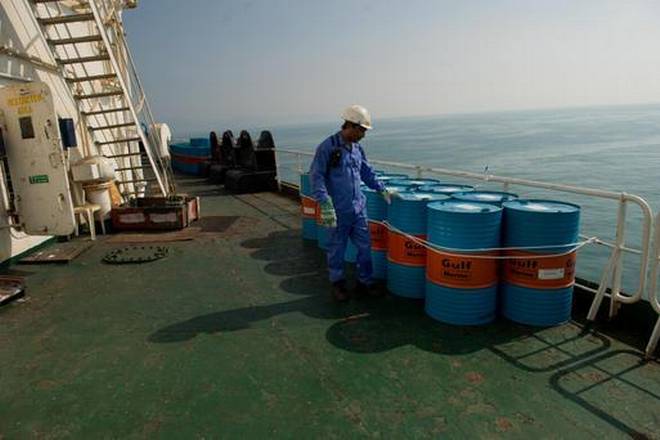New Delhi cuts Iran oil imports
September 27, 2018 | Expert Insights

India does not plan to buy any Iranian oil in November, raising the prospect that Tehran will lose another major customer as U.S. sanctions come into play.
Background
India and Iran have long-standing historical and cultural ties. India’s first Prime Minister Jawaharlal Nehru said, "Few people have been more closely related in origin and throughout history than the people of India and the people of Iran." Trade between the two regions dates back to India’s Indus Valley Civilization, which was a contemporary of the Mesopotamian civilization.
India and Iran established modern diplomatic relations in 1950. During the Cold War, the two nations kept a studied distance due to India’s participation in the Non-Alignment Movement and Iran’s ties to the US. After the 1979 Iranian revolution, Iran’s relationship with Washington suffered, and ties between India and Iran strengthened momentarily. However, Iran's continued support for Pakistan and India's close relations with Iraq during the Iran–Iraq War impeded further development of Indo–Iranian ties. Iran is home to 7 million expatriate Indians.
Iran is one of the largest suppliers of oil to India. In 2011, the US$12 billion annual oil trade between India and Iran was impacted by extensive economic sanctions against Iran, forcing the Indian oil ministry to pay off the debt through a banking system through Turkey. The sanctions were a result of Iran’s nuclear programme, which has been a source of concern for the international community.
India is the second-largest buyer of Iranian oil and has imported an average of 577,000 barrels a day or about 27% of the Middle Eastern country’s exports.
Analysis
India is joining other Asian buyers such as South Korea and Japan that have already halted imports from Iran before American restrictions take effect in early November. It’s unclear if China, the world’s biggest oil importer as well as Iran’s top customer, will persist with purchases.
Indian Oil Corp. and Bharat Petroleum Corp., the country’s two largest state-owned refiners, haven’t asked for any Iranian cargoes for loading in November, according to officials at the companies. Nayara Energy also doesn’t plan any purchases, said an industry executive. Mangalore Refinery and Petrochemicals Ltd. hasn’t made any nominations for that month, but may do so later, a company official said.
The companies are the four largest buyers of Iranian oil in India, accounting for almost all of the country’s imports from the Islamic republic. Final decisions on purchases aren’t due until early October, so the refiners could still change their minds. The officials and industry executive asked not to be identified because of internal policies.
The rapid drop in Iranian exports has helped to push Brent crude, the global benchmark, to a four-year high above $80 a barrel. Further output losses could drive prices even higher as refiners urgently seek replacement barrels elsewhere. Around the world, only Saudi Arabia and, to a lesser extent, United Arab Emirates and Russia, have the capacity to pump more.
Brent crude was up 22 cents at $82.09 a barrel by 8:15 a.m. in London, after climbing almost 4% over the previous two sessions, just as U.S. President Donald Trump railed against OPEC and demands the cartel lower oil prices. Futures are up about 40% in the past 12 months.
The impending U.S. sanctions are creating a major gap in the global oil market just as Brent crude hits a four-year high above $80 a barrel.
Counterpoint
India may yet receive an exemption from Washington’s sanctions in the near future as talks are underway. Due to India’s rising influence in the Persian Gulf and its strong relation with Tehran, New Delhi will become a useful ally in curbing Iranian activities without any military action. Therefore, Washington may exempt Indian oil companies from the sanctions placed on Iran’s oil exports.
Assessment
Our assessment is that Iran is India’s third-largest oil supplier and will be drastically affected by the sanctions. With less cover for energy security, such a move will push oil prices further northwards and will pose a significant problem for New Delhi in the 2019 elections.








Comments